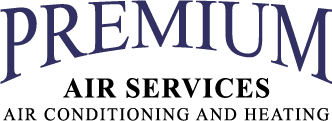
Ever done a double take when you took a look at your last energy bill? Although high energy bills can be the consequence of intense weather conditions, consistently high bills can often signify an inefficient HVAC system or your home is misusing energy through other means, including drafty windows or inadequate insulation.
One of the simplest ways to identify whether your home is consuming too much energy is by hiring a home service professional to carry out a home energy audit, also called a home energy assessment. Keep reading to learn all about home energy audits, including what they are and their advantages.
What Is a Home Energy Audit?
An energy audit is a custom inspection of how much energy your home uses up and whether – and where – your home could be losing or wasting energy. An inspector will take a look at older energy bills while completing an energy audit to figure out where energy is being consumed and how much.
The ultimate goal of an energy audit is to help homeowners save money on their energy bills by recommending energy-efficient updates, which can include exchanging your existing HVAC system, installing new insulation, sealing up leaks, or replacing old windows.
During the energy assessment, the auditor carries out an inspection of the outside and inside of your home. The auditor will perform a blower door test on doorways, windows and fireplaces to figure out if there are air leaks in your home. They’ll also check your home’s HVAC system, including the ductwork, the water heater, and the insulation in your attic. Comprehensive assessments might also include checking your current lighting system.
Benefits of a Home Energy Audit
It can be difficult for the average homeowner to know for sure how efficient their home is compared to other similar homes in their community. However, local energy companies often supply information about where your home ranks when compared with similar homes and whether it’s more efficient, about average, or inefficient compared to your neighbors’ homes. This is a good starting point to decide if you need an energy audit performed.
A few of the benefits of a home energy audit include:
Understanding How Efficient Your Home Is
It’s good to understand how efficient your home is and where you’re consuming the most energy. For example, if your ducts are leaking, it could result in a large increase in your energy bills and excessive wear and tear on your HVAC system as it has to stay on longer to properly heat or cool your home.
Making Energy-Efficient Improvements
An energy audit can expose where you need to make energy-efficient upgrades to save on energy and lower utility bills. This can include replacing old weatherstripping or installing a new energy-efficient furnace.
Enhancing Health and Safety
Permitting air to seep into your home via doors and windows, or as a result of a lack of insulation can cause unwanted moisture to appear, which could negatively impact your home’s humidity levels or lead to mold. This can exacerbate health issues, particularly for people dealing with asthma or allergies.
Increasing Your Home’s Retail Value
Energy-efficient homes are desired by homebuyers. You can sell your home much faster or for more money by telling possible buyers that it’s energy efficient.
How to Complete an Energy Audit of Your Home
Although handling an energy audit on your own may not be as comprehensive as calling a professional, it’ll offer you a generalized sense of how energy efficient your home is. If you don’t discover any issues during the DIY test, then you potentially don’t need to bring in a professional. Follow this step-by-step checklist:
- Review your HVAC system. Broken ducts can lose up to 20% of conditioned air, leading to steeper energy bills and greater wear and tear on HVAC equipment. If you find leaks, use duct tape to eliminate them. If your HVAC equipment is old and wearing down, upgrading to a new system can save you a substantial amount on your energy bills. In some cases, it is better to call a reputable HVAC company to inspect your system.
- Watch for signs of air leaks. Air leaks on average can increase the energy bills by 10 to 20%. Inside, look for air leaks in areas where there is a draft, like along the edge of flooring and along baseboards and electrical outlets. Outside, you can inspect for air leaks in the home’s foundation, siding and mortar. Plug, caulk or seal any air leaks to save money.
- Examine insulation. If your home is older, it could mean your insulation is too. If you can see the joists, you likely need more insulation.
- Check ventilation. Make sure that all of your kitchen and bathroom exhaust fans are functioning properly, and check for evidence of rot or moisture.
Contact Premium Air Services LLC for a Professional Energy Audit
If you are interested in professional help finding out how energy efficient your heating and cooling equipment is, call the HVAC pros at Premium Air Services LLC today. We’ve proudly supported the residents of Tomball with quality home services for many years. Contact us today to schedule an appointment.
